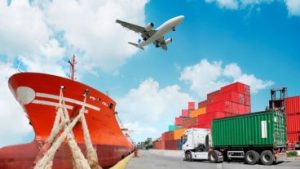LOWER LOGISTICS COSTS AND BRING RELIEF TO THE SECTOR
According to the index prepared by Fadeeac, there was a decrease of 0.45%, for the first time so far this year.
A little air for the heavy cost burden that sustains the transport of loads. For the first time so far this year, there was a decline in the April cost index: -0.45%. This implies a decrease of the accumulated increase of the year, which reaches 6.6%, after having marked 7.1% in the first quarter. This decrease alleviates and gives truce to a sector that continues to operate in a situation of marked decline in activity.
One key was the 1.47% decline in fuel costs following the slight drop in March (-0.5%). Despite this record, gas oil for freight transport currently revolves around US $ 1.10, the highest value in the region without Uruguay.
The cost index for the 2017 freight transport sector, prepared by the Department of Economic Studies of the Argentine Federation of Employers of Freight Transport (Fadeeac), showed a 0.45% decrease in April 2017. In this way the cumulative increase of the year that has to support the sector is 6.6%.
In the disaggregated increase in the course of 2017, tolls stood out (39.7%), in the context of the strong adjustments in toll traffic for the North and West accesses to and from CABA, followed by patents (35%). . In the first quarter, financial cost (16.8%) was also notable, due to the impact of interest rate rises and general expenses (14.4%), which mainly reflects the increase in public services. Fuel, on the other hand, reaches 6.2% while personnel registers 4.2% after the last quota of cct 40/89 in force in March.
The higher costs in the activity are in line with the revisions of greater retail inflation for the first part of the year and well above the evolution of the wholesale prices.
Fadeeac noted that «under this scenario, the sustained increase in costs to transport goods in the country has the aggravation of being in a declining market for transport companies, with sharp drops in the consumption of gas oil added to A tax burden of the order of 40% that conspires against the competitiveness of the sector».
Suspending increase
The government reversed for 90 days with the increase of u $ s 10 to u $ s 30 of the computer fee that charges via the SIM system for each customs destination.
«I participated in the meeting of Transport Infrastructure and Logistics Costs: The Challenges to Grow, organized by the AEA. Arcors entrepreneur was perhaps the most concrete in his presentation, when he pointed out that exporting a container from Argentina has a cost of u $ 2,900 (54% cost of transportation, 31% port terminal cost, 15% paperwork and documents) Export from Brazil, u $ s 1,900, from Mexico, u $ s 1,700, and from Chile u $ s 900. I always insist on That Argentina is more competitive and productive in its exports and imports. While the government is working on macro issues, the only measure we could celebrate in the micro, that is, in the daily costs, was the elimination of Ivetra And export rights», Marcello Vaccari, managing director of the Vaccari Group, told Transport & Cargo.
In the opinion of the director, «nothing has changed in the costs linked to what the agencies involved in foreign trade, which on the contrary continue to increase their tariffs. Nothing has changed to regulate the high costs of port terminals, nor in The facilitation and improvement of the times. No customs processes have been simplified and the red carcass percentages are still very high. Immitory admission for export-related inputs and the low exchange rate has not been simplified and this does not help either. I think that the synchronization between Infrastructure, AGP, Customs, AFIP and the different agencies like Senasa, INAL, Anmat, etc. should be better worked through. The one-stop shop can be a first step, but coordinated measures must be implemented to improve productivity and reduce We must reduce the Argentine cost and the state must be the main driver and must lead by example, said Vaccari».
In retreat
Belgian company Katoen Natie officialized its decision to withdraw from the operations of the port of Montevideo and ensured normal work in the transition stage, which will not go beyond the end of the year.
The intention to sell the shares reaches the Katoen Natie companies active in the port operations business Seaport Terminals Montevideo S.A., Nelsury SA and Terminal Cuenca del Plata SA (80% subsidiary, the remaining 20% ??belongs to the Uruguayan State).
«There are other operators and investment companies and shipping companies that have an interest in setting up in the port of Montevideo.» It is one thing to announce the interest, and another to do business, «said Victor Rossi, Minister of Transport and Public Works of Uruguay. Official added that «there is a history of other similar experiences of the company in the port of Antwerp, where after developing its specialty, which is logistics, detached from port activity or maintains part of it for its development.»






